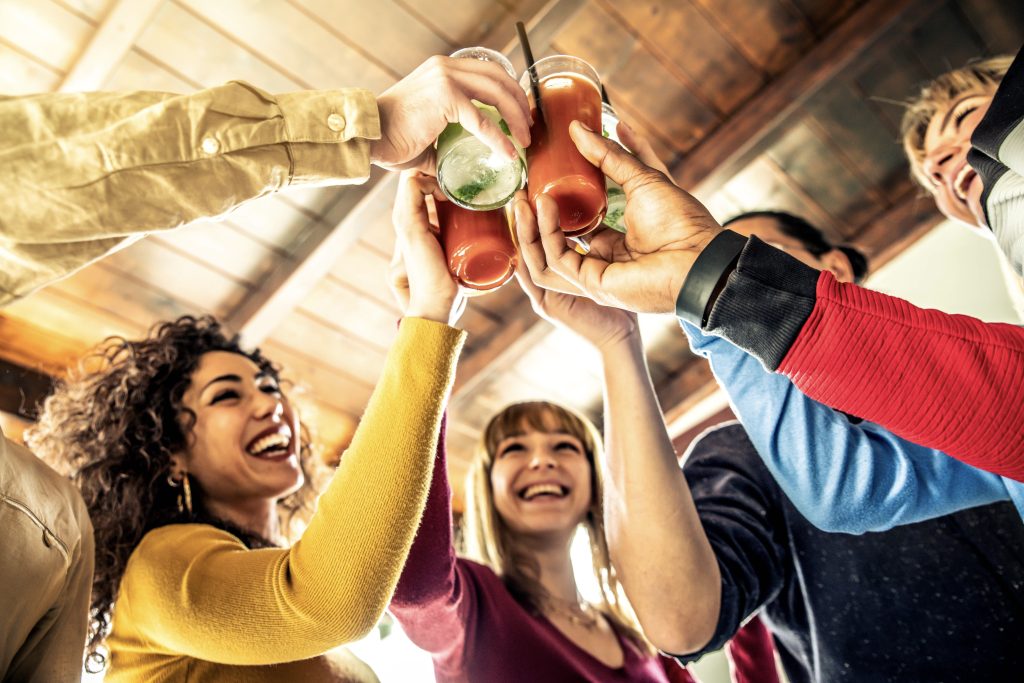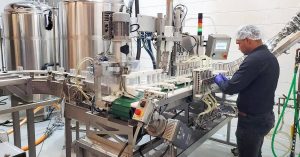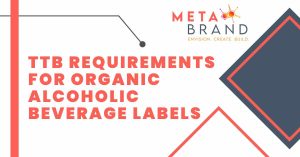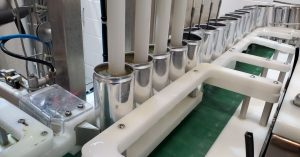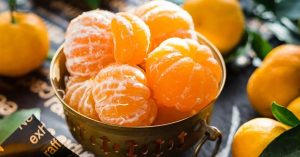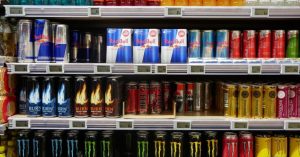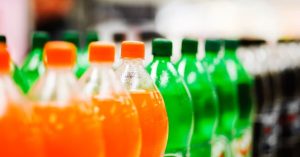Key Highlights
- Health-conscious beverages: Driven by consumer demand for “better-for-you” options, the beverage industry sees a surge in low-sugar, zero-sugar, and functional drinks.
- Non-alcoholic alternatives: The “sober curious” movement fuels the rise of non-alcoholic spirits, beers, and wines, appealing to Gen Z and millennials seeking alternatives to traditional alcoholic beverages.
- Sustainability focus: Ethical sourcing and sustainable packaging are no longer optional. Consumers actively seek out brands committed to environmental responsibility.
- Technology-driven personalization: AI and blockchain are transforming the beverage industry, enabling personalized beverage creation and ensuring transparency and traceability in supply chains.
Introduction
The beverage industry is experiencing a dynamic period of transformation. Consumer preferences are reshaping the beverage landscape, urging manufacturers to adapt and innovate.
From health and wellness to sustainability and technology, understanding current beverage trends is crucial for businesses to thrive.
This article explores the latest innovations and trends influencing the beverage industry, offering insights into this evolving market.
The Rise of Health-Conscious Beverages
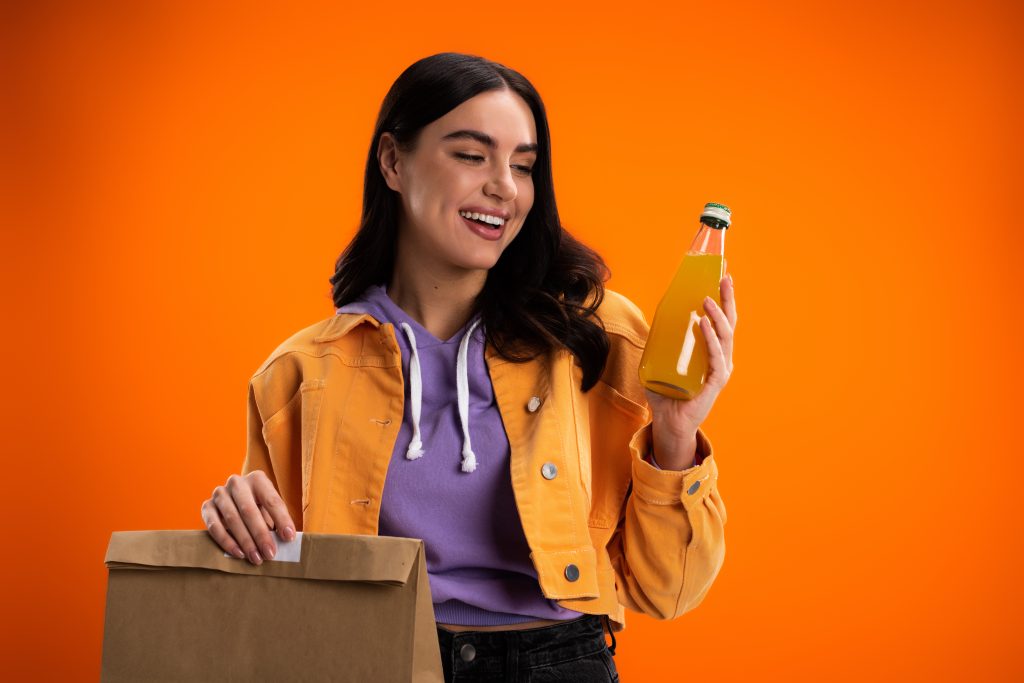
Consumers are increasingly aware of the health impact of their dietary choices, and beverages are a significant part of this awareness. This shift in consumer behavior translates to a growing demand for beverages that not only quench thirst but also provide nutritional value and support well-being.
Beverage brands are responding to this demand with innovative product lines. From low-sugar and zero-sugar alternatives to drinks infused with vitamins, minerals, and other functional ingredients, the focus on health-conscious beverages is transforming the industry.
Shifting Preferences to Low-Sugar and Zero-Sugar Options
One of the most significant shifts in consumer behavior is the move away from sugary drinks. As awareness of the negative health effects of excessive sugar consumption grows, consumers are actively seeking out low-sugar and zero-sugar alternatives to their favorite beverages.
Responding to this demand, beverage manufacturers are reformulating existing products and introducing new ones that align with these health claims. The market is witnessing an increase in zero-calorie versions of traditionally sugar-laden drinks, using natural and artificial sweeteners to replicate the taste while reducing or eliminating sugar content.
This trend goes beyond simply reducing sugar; there’s a growing interest in functional beverages that offer additional health benefits. Consumers are increasingly drawn to drinks fortified with vitamins, minerals, antioxidants, and other ingredients perceived to boost their well-being.
Popularity of Functional Drinks: Vitamins, Minerals, and More
The functional beverage market is experiencing remarkable growth, fueled by consumer demand for products that support their wellness goals. This category encompasses a wide range of beverages, each catering to specific health needs and preferences.
From energy drinks enhanced with natural caffeine sources like guarana and yerba mate to relaxation drinks infused with adaptogens such as ashwagandha and L-theanine, consumers are presented with a growing selection to choose from.
Additionally, beverages fortified with vitamins and minerals like vitamin D, zinc, and magnesium, are gaining popularity as individuals seek convenient ways to supplement their diets.
This consumer trend is prompting beverage brands to explore new ingredients and formulations, constantly innovating to capture this health-conscious market segment.
The Boom in Non-Alcoholic and Low-Alcohol Alternatives
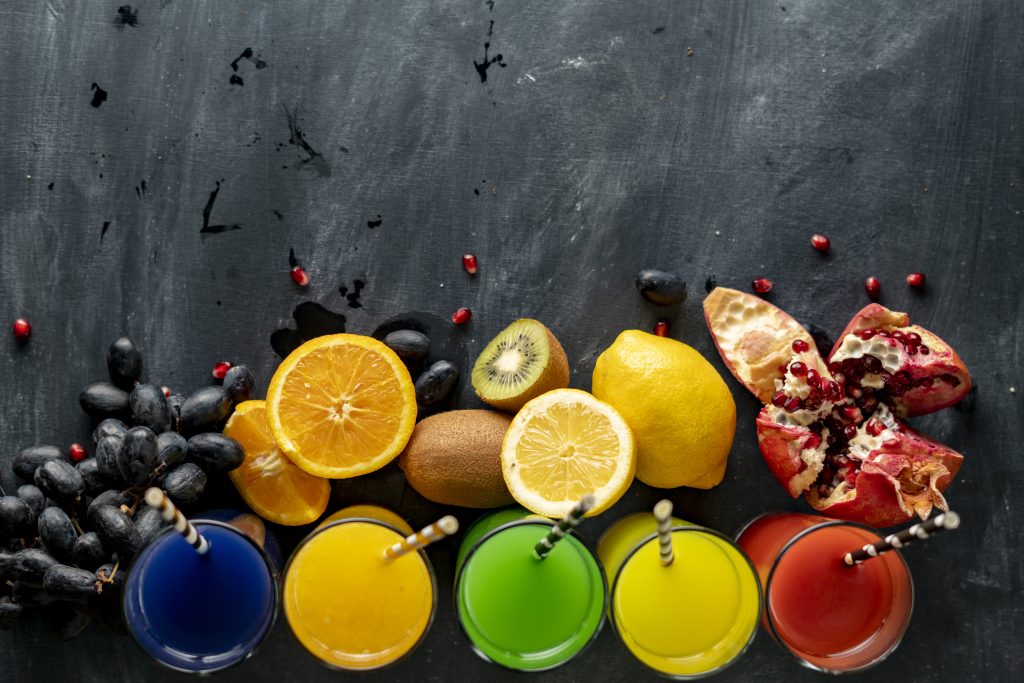
The non-alcoholic and low-alcohol beverage market is experiencing an unprecedented surge in popularity, driven by a confluence of factors. Health concerns, changing social norms, and a desire for more mindful consumption habits contribute to this shift away from traditional alcoholic beverages.
This trend is particularly pronounced among younger generations, with Gen Z and millennials increasingly opting for non-alcoholic and low-alcohol options. Beverage companies are responding by expanding their product lines to offer a wide variety of appealing alternatives.
The Growing Market for Non-Alcoholic Spirits, Beers, and Wines
The market for non-alcoholic beverages has expanded far beyond simple fruit juices and sodas. Today, consumers can find high-quality, sophisticated non-alcoholic spirits, beers, and wines that closely mimic the taste and experience of their alcoholic counterparts.
This trend is driven in part by the “sober curious” movement, where individuals are more mindful of their alcohol consumption and actively seek out alternatives for social occasions or personal enjoyment. These beverages provide a way to participate in social settings and explore new flavors without the negative effects of beverage alcohol.
The growing availability and increasing quality of non-alcoholic options are further propelling market growth, providing consumers with greater choice and driving innovation in the beverage industry.
Factors Driving the ‘Sober Curious’ Movement
Several factors contribute to the consumer shift away from alcoholic beverages. Health and wellness are primary concerns, with consumers becoming more aware of the potential negative consequences of excessive alcohol consumption.
This consciousness is particularly evident in younger generations, such as Gen Z, who are demonstrating a greater interest in moderation and opting for healthier lifestyle choices.
Social media also plays a role in promoting mindful drinking habits, with platforms showcasing a wider range of non-alcoholic options and celebrating a more balanced approach to socializing.
Furthermore, the increasing availability of appealing non-alcoholic alternatives eliminates the compromise previously associated with choosing not to consume alcohol. Consumers are no longer limited in their options and can find delicious and satisfying alternatives that align with their preferences.
Sustainability and Ethical Sourcing in the Beverage Sector
Sustainability is no longer a niche concern but a core value for many consumers, and the beverage industry is feeling the impact. Consumers are increasingly conscious of the environmental and social impacts of their purchasing decisions and are holding brands accountable for their practices.
Ethical sourcing of ingredients and sustainable packaging solutions are now essential considerations for beverage companies. Consumers are actively looking for transparency and traceability in supply chains, favoring brands committed to minimizing their ecological footprint and supporting ethical labor practices.
Impact of Single-Use Plastic Legislation on Packaging Innovations
Legislation aimed at reducing single-use plastics is having a profound effect on packaging across industries, and the beverage sector is at the forefront of innovation. Bans on single-use plastic straws, bags, and bottles are pushing companies to adopt more sustainable alternatives.
This shift has led to a surge in research and development, with companies exploring a range of materials and technologies. Biodegradable and compostable packaging, reusable containers, and alternative packaging materials derived from plant-based sources are gaining traction.
| Packaging Innovation | Description |
| Bio-based Plastics | Plastics derived from renewable resources like corn, sugarcane, or algae. |
| Compostable Packaging | Packaging that breaks down into organic matter in composting facilities. |
| Reusable Containers | Bottles or containers designed for multiple uses, encouraging a circular economy. |
Consumer Demand for Ethically Sourced Ingredients
Beyond packaging, consumer preferences are influencing ethical sourcing practices within the beverage industry. Consumers are increasingly interested in the origin of ingredients, demanding transparency and fairness throughout the supply chain.
Fair-trade coffee, sustainably sourced tea, and chocolate sourced from ethical cacao farms are prime examples of this growing consumer awareness. Beverage companies are responding by forging partnerships with suppliers committed to fair labor practices, environmental conservation, and community development.
This emphasis on ethical sourcing aligns with the broader trend of conscious consumerism, where purchasing decisions reflect a desire to support businesses that prioritize social and environmental responsibility.
Technological Innovations Shaping Product Development
Technology is revolutionizing the beverage industry, influencing every stage from product development to consumer experience. Artificial intelligence, blockchain, and other cutting-edge technologies are being leveraged to create innovative products, enhance sustainability, and personalize the consumer journey.
These technological advancements are enabling beverage companies to optimize their operations, gain valuable insights from data, and tailor their offerings to meet the evolving demands of the modern consumer.
AI and Personalization in Beverage Creation
Artificial intelligence (AI) is transforming how beverages are created, marketed, and experienced. AI algorithms can analyze vast amounts of data, including consumer preferences, flavor profiles, and market trends, to identify potential gaps in the market and develop innovative new products.
This technology also plays a crucial role in personalizing the consumer experience. AI-powered platforms can tailor recommendations based on individual taste profiles, dietary preferences, and purchase history, offering a more customized and engaging interaction with beverage brands.
Furthermore, AI can be integrated into smart vending machines and other dispensing systems to provide personalized beverages on demand. Imagine a world where your drink is prepared to your exact specifications, adjusting sweetness, flavor intensity, and even offering functional add-ins based on your preferences.
Blockchain for Transparency in Supply Chains
Blockchain technology is emerging as a powerful tool to enhance transparency and traceability in beverage supply chains. By creating a secure and immutable record of transactions, blockchain provides consumers with greater confidence in the origin and journey of their beverages.
From bean to cup or from grape to glass, blockchain can track each stage of the supply chain, ensuring ethical sourcing practices, verifying ingredient authenticity, and minimizing the risk of fraud or mislabeling. This level of transparency is increasingly important for consumers who are demanding greater accountability from the brands they support.
Blockchain also enables consumers to access detailed information about the products they purchase. By simply scanning a QR code on the packaging, consumers can learn about the origin of ingredients, the production process, and the environmental impact of their beverage choices.
Premiumization and the Demand for Luxury Experiences
In a world saturated with choices, consumers are increasingly seeking out premium products and experiences that offer a sense of exclusivity and indulgence. This trend, known as premiumization, is evident across various industries, including the beverage sector.
Consumers are willing to spend more on high-quality, craft beverages that offer unique flavors, artisanal production methods, and premium packaging. This demand for luxury experiences is driving innovation in the beverage industry, with brands focusing on craftsmanship, heritage, and storytelling to elevate their offerings.
The Role of Craftsmanship and Artisanal Production
Craftsmanship and artisanal production methods are highly valued in the age of premiumization. Consumers are drawn to beverages that tell a story, reflecting the passion and expertise of their creators.
Small-batch distilleries, craft breweries, and specialty coffee roasters are flourishing as consumers seek out products made with care and attention to detail. These artisanal producers often prioritize quality ingredients, traditional techniques, and unique flavor profiles, appealing to discerning palates.
This emphasis on craftsmanship extends beyond the beverage itself to encompass the entire brand experience. From the design of labels and packaging to the ambiance of tasting rooms and events, brands are striving to create memorable and immersive experiences that resonate with consumers seeking authenticity and quality.
How Premium Packaging Influences Consumer Choice
Packaging plays a crucial role in conveying a sense of luxury and influencing consumer choice. Premium packaging often features high-quality materials, intricate designs, and tactile finishes that enhance the perceived value of the product.
The use of embossing, foil stamping, and other embellishments can elevate the visual appeal of packaging, creating a sense of exclusivity and desirability. Furthermore, sustainable packaging materials, such as recycled paper and biodegradable plastics, can align with consumer values and contribute to a positive brand image.
In today’s competitive market, premium packaging is an essential element in attracting attention on crowded shelves and enticing consumers to choose one brand over another, particularly within the premium beverage segment.
The Expansion of Ready-to-Drink (RTD) Beverages

The expansion of ready-to-drink (RTD) beverages has been a significant development in the beverage industry. With consumers seeking convenience and variety, RTD beverages have gained popularity.
Companies are innovating with new flavors, ingredients, and packaging to cater to this demand. From energy drinks to alcoholic beverages, the RTD market is witnessing a surge in consumer interest.
Beverage manufacturers are adapting to this trend by introducing innovative product lines and leveraging marketing strategies to capture this growing segment of consumers. Ready-to-drink beverages offer a blend of convenience and choice that align well with the preferences of today’s consumer base.
Convenience and the Rise of RTD Cocktails
The rise of RTD cocktails is a testament to consumer demand for convenience without compromising quality. These pre-mixed cocktails offer a convenient way to enjoy bar-quality drinks at home or on the go, eliminating the need for multiple ingredients and bartending skills.
RTD cocktails come in various flavors and formats, catering to a wide range of preferences. From classic margaritas and mojitos to more innovative and experimental concoctions, there’s an RTD cocktail for every taste.
Brands are using high-quality spirits, fresh fruit juices, and natural sweeteners to create premium offerings that appeal to discerning drinkers.
The convenience factor is particularly appealing to millennials and younger consumers who value experiences but seek ease and simplicity in their busy lives. The RTD cocktail market is well-positioned for continued growth, driven by innovation, quality, and the ongoing demand for convenient indulgence.
Growth in Health-Focused RTD Options
The health-focused beverage trend is also influencing the RTD category, with a growing number of consumers seeking convenient and healthy options on the go. This has led to a surge in health-focused RTD beverages that cater to various dietary needs and preferences.
RTD protein shakes, cold-pressed juices, and kombuchas are becoming increasingly popular as consumers seek convenient ways to incorporate functional ingredients and probiotics into their diets. Additionally, brands are developing low-sugar and sugar-free RTD options using natural sweeteners like stevia and monk fruit to appeal to health-conscious consumers.
This convergence of health, convenience, and flavor is driving innovation and growth in the RTD beverage market, providing consumers with a wider selection of options than ever before.
Cheers!
The beverage industry is evolving with a focus on health, sustainability, and innovation. Consumers are leaning towards low-sugar, functional, and non-alcoholic options. Embracing ethical practices and technological advancements like AI and blockchain are shaping product development.
Premium experiences and convenient RTD beverages are gaining popularity. As the sector progresses, understanding consumer trends and implementing sustainable practices will be key.
If you’re looking to start your own beverage company, reach out to us. We’re here to help you navigate these trends and bring your vision to life.


